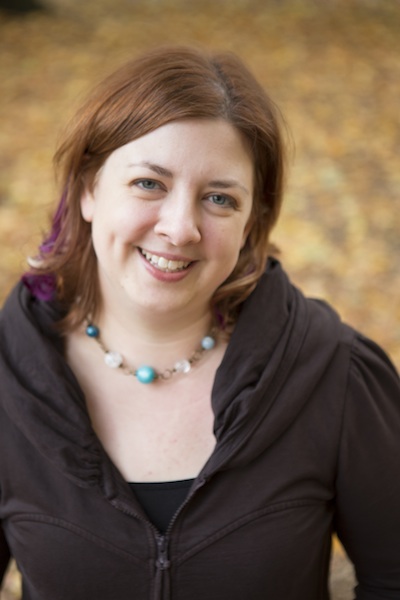Aesthetics, Rhythm, & Literary Preference
 Friday, October 11, 2013 at 5:18PM
Friday, October 11, 2013 at 5:18PM 
Why do some books go down easy, like a perfectly mixed cocktail, the kind that is so good you don't even realize you're imbibing until you're pleasantly tipsy?
Why do we like the poets and authors we like? Why do we dislike others, sometimes even those who are lauded as "great"? Why do some books resonate with me and not with you? How can you love the taste of some writing while it's all I can do to choke down more than a few paragraphs?
Is it the subject matter? The way the author's world view affirms or challenges our own? Our mood on any given day when we're reading? The answer is probably yes, all of the above, at least to some extent. But I've been thinking about how there might be something even more foundational at work in our reading preferences. I think it's the same thing that determines whether or not we like a piece of visual art, a movie, or even another person.
Surely these preferences come down to aesthetics: "a set of principles underlying and guiding the work of a particular artist or artistic movement."
But what creates a particular aesthetic? I think it has something to do with rhythm.
This is easiest to apply to music, of course. Some people like a strong, fast beat. Others like a slow groove. But it's not just the beat, is it? Both Beyoncé and Mumford & Sons have fast-tempo songs, but the feel of each are very different. There's the sound and texture of the music to consider.
I think the same is true with prose and poetry. Words (individually or in groups) have unique beats, rhythms, and textures. When I write, I need quiet so I can "hear" the words I want to use, as well as hear how they belong together on the page. Each phrase, sentence, or passage has its own unique flow. I know when it sounds right. And when it doesn't.
But what sounds "right" to me may not sound right to you. My internal rhythm isn't exactly the same as anyone else's, but it may be more similar to some than to others. I think what often turns us off of a particular writer or piece of writing is a case of mismatched rhythms. When the texture, tone, or flow of what we're reading doesn't mesh with our internal soundscape, the result is discordant. It's unsettling, jarring, jangling. It feels ugly and cumbersome. It just doesn't speak to us. It lacks resonance.
I remind myself of this every time I receive a rejection letter from a literary magazine. I always look at my work to see if I can improve it, but I have essays that I know are good. They're polished and true to what I wanted to say, and -- according to myself and some others who've read them -- they're beautiful. But they get rejected. Why? Who knows? Maybe my submission wasn't a good fit for the next issue of a particular publication. Maybe that journal just accepted another piece about a similar topic. Or maybe the person reading my essay has a different internal rhythm.
As an editor and writing coach, I'm perhaps hyper-aware of this rhythm issue. I never want to impose my internal rhythm onto another writer's work. I want their voice to come through every sentence. I want to help them find the best way to write something in the literary rhythm that sings through them. When I first started working as an editor, I rewrote a lot of passages for my clients, showing them exactly how to "fix" things. It got to the point where I felt like I was ghostwriitng rather than editing. My approach now is different. Now I try to point out awkward or confusing passages and give the writer the tools to improve it themselves. I still provide some examples on how I might rework something, but I'd rather share information about writing techniques and encourage people to apply those to their own work, in their own style.
As a reader, I've picked up -- and then put down -- plenty of books that are well-known, well-loved, or have been recommneded to me by writers and readers that I respect. Sometimes the timing is just wrong. I tried to read Annie Dillard's essays several times over the course of several years before I finally liked her and eventually fell in love with her work. Did something shift in my own internal harmonics that gave me access to her writing rhythm? Then, after a few years of loving her work, I found myself cooling toward some of it. Had something shifted again?
Sometimes we meet a new person, and talking to them is easy. We say we're on the same page. Sometimes the conversation is stilted and awkward. We say we're on different wavelengths. I think the same is true of books.
I realize that my thoughts on this are a bit scattered. I feel like I'm working toward some sort of unifying theory about the internal rhytym of language that makes us the kind of writers and readers we are. Maybe it all comes down to what's commonly called writing voice. What would you call it?


Reader Comments (1)